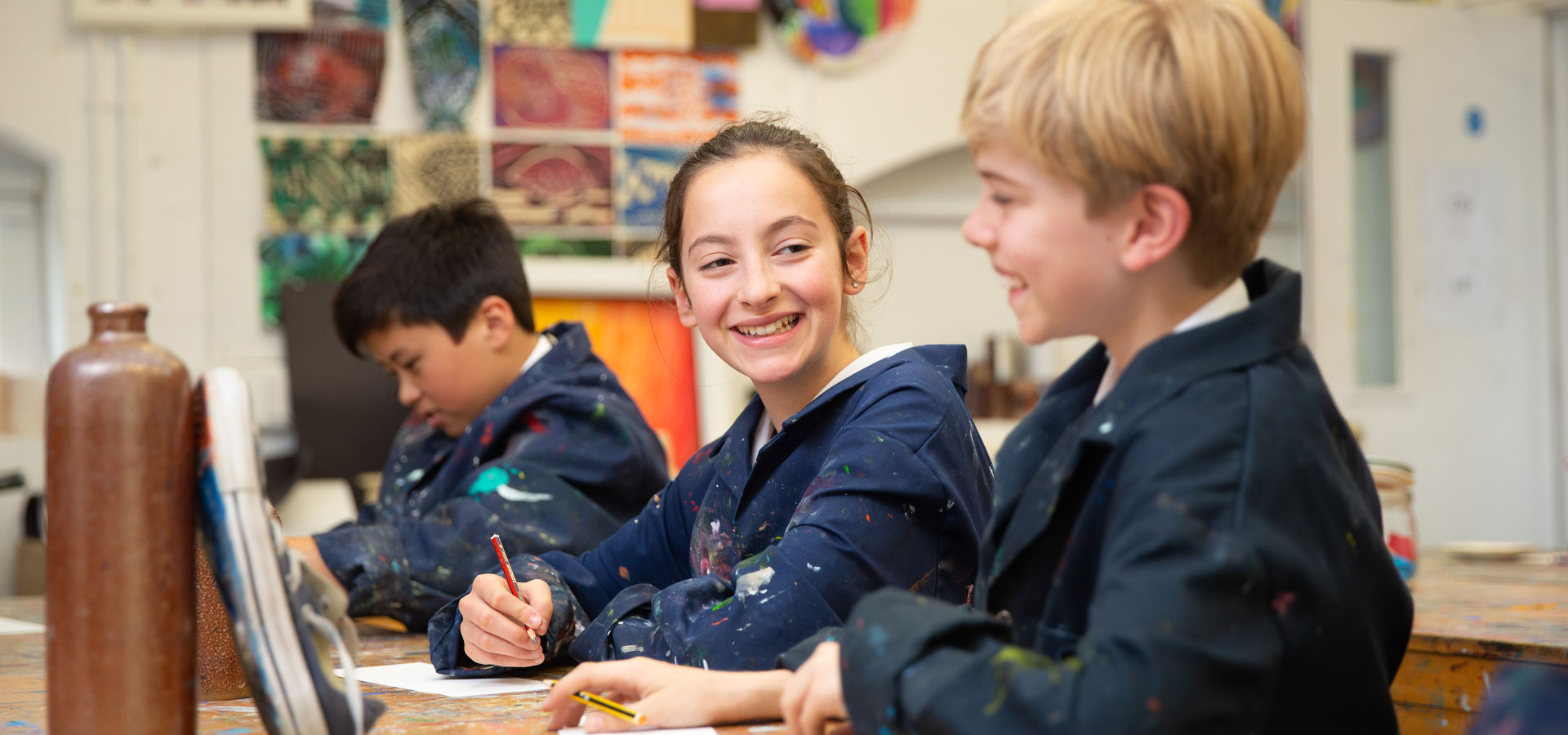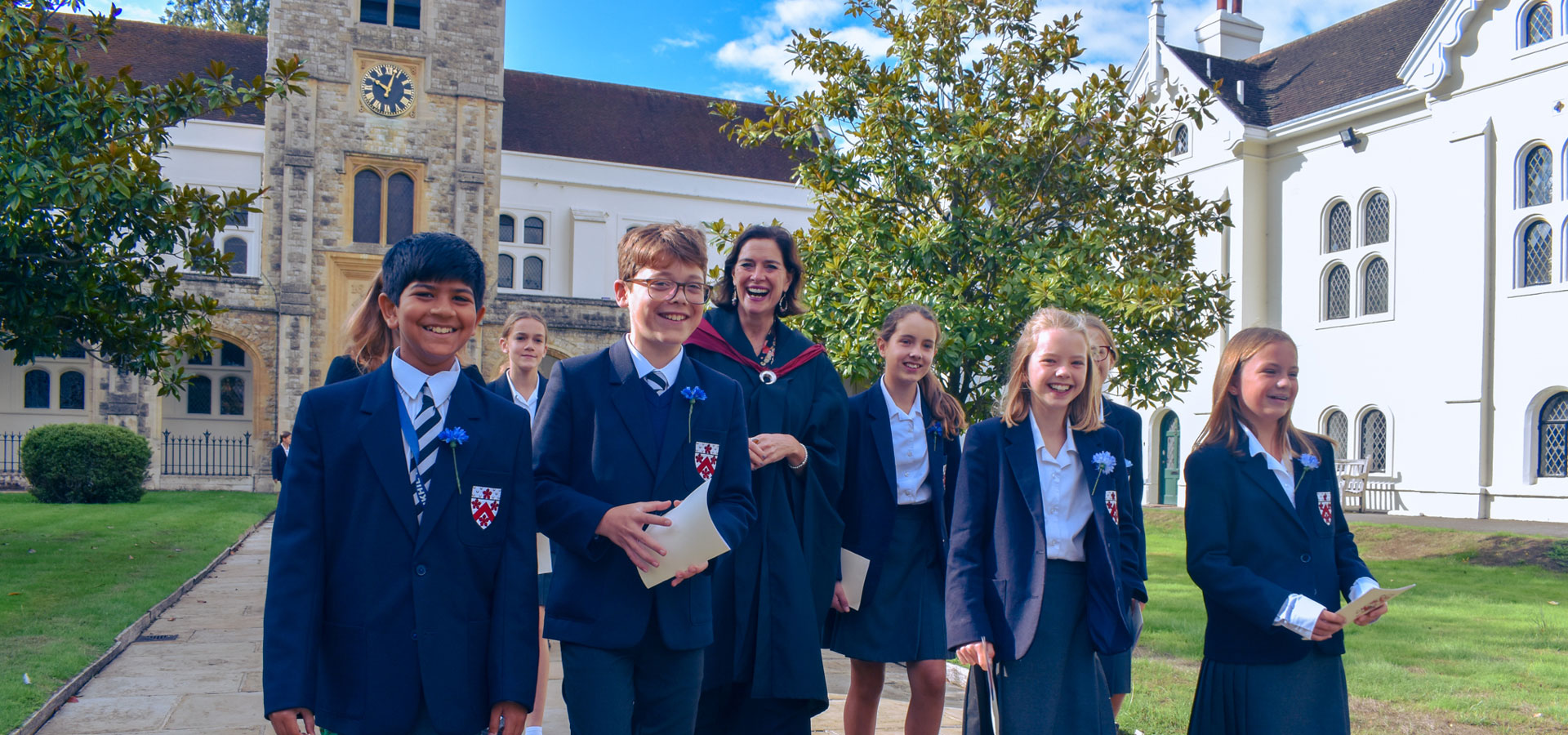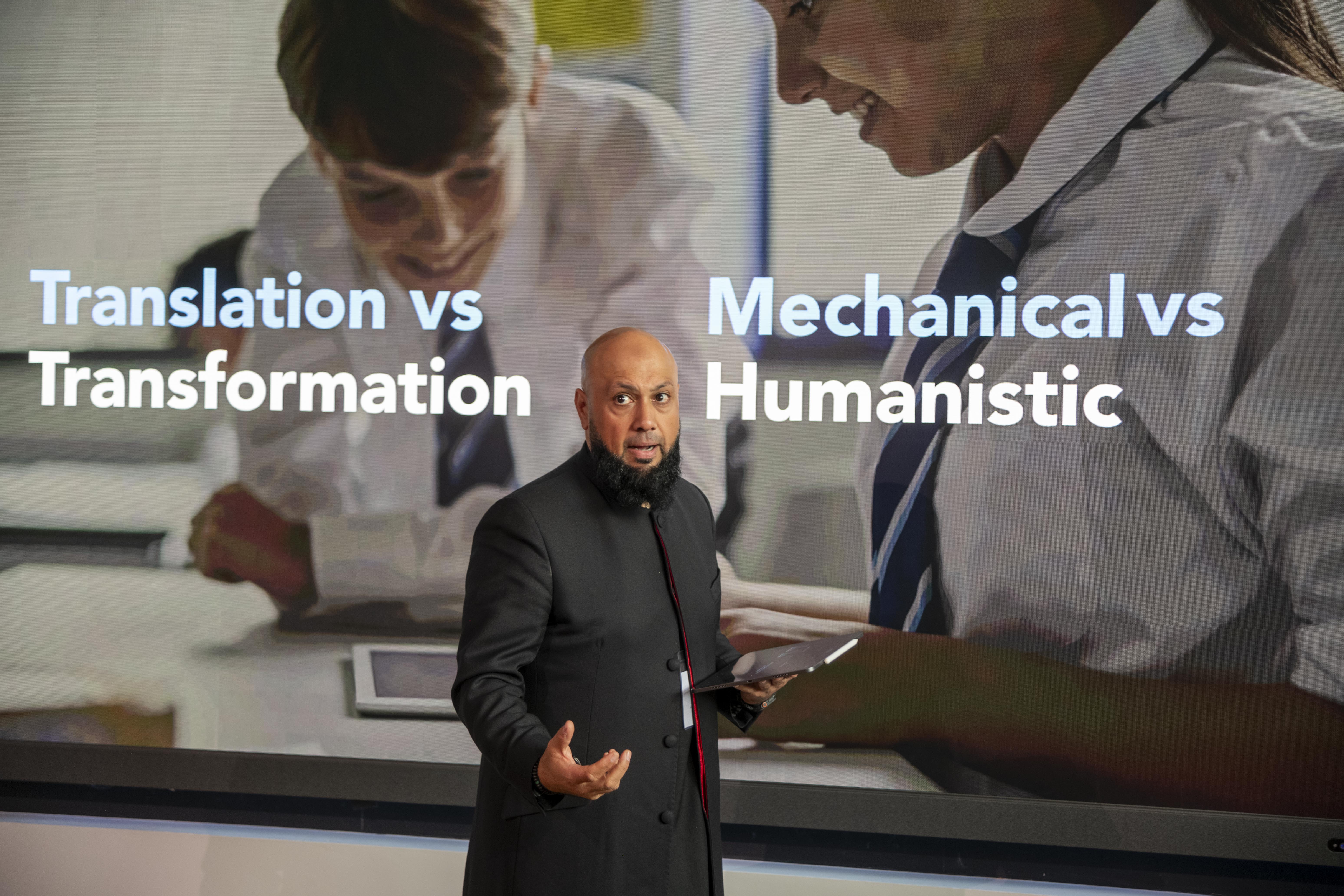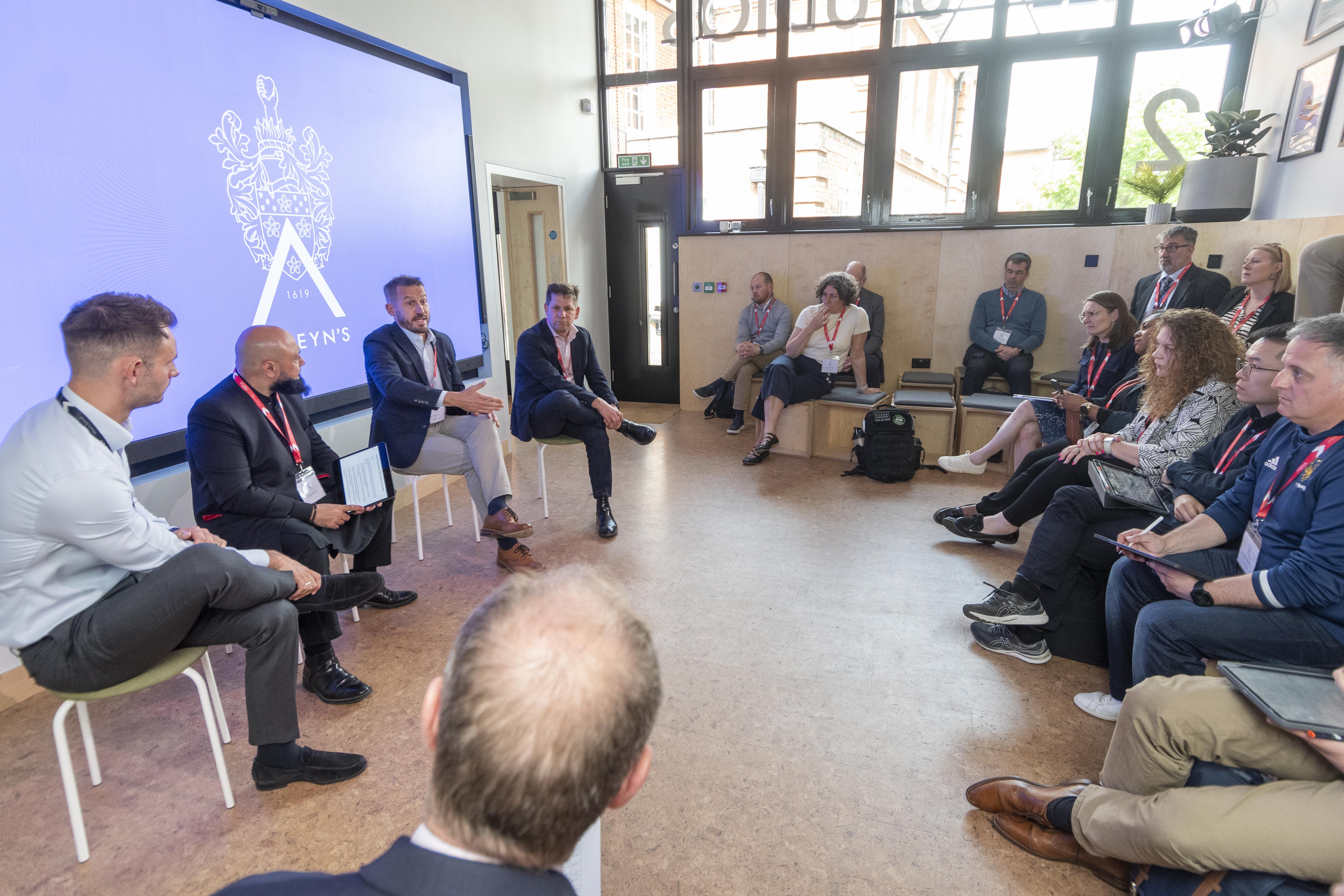Today, Alleyn’s welcomed educators, technologists, and thought leaders for a day of discussion, inspiration, and collaboration, where one of the key questions explored was: ‘How can schools help students have an impact at school?’
The event, hosted under the banner Future Proof Education: Building Students for the Digital World, began with a welcome from Head, Jane Lunnon, before launching into a thought-provoking keynote by Tom Scott-Soundy, Head of Digital Learning and Innovation.
At the heart of the conversation was a powerful creative challenge, framed by Head Jane Lunnon in her opening remarks: “How can schools help students have an impact at school – a critical question. The creative question is: how can we provide our pupils with digital fluency to enable them to think critically and channel their natural creativity to think about how they can use tech?”
Throughout the day, speakers explored how Alleyn’s is preparing young people to lead with integrity and imagination in a rapidly evolving digital landscape. Apple Professional Learning Specialist Rachel Smith introduced us to the concept of Designing Heroes, highlighting how creative technology can empower students to achieve extraordinary outcomes.
Sessions by Abdul Chohan (Vice President of Learning, Showbie) and our very own Junior School “Mini Apple Geniuses” showcased real-life applications of edtech in enhancing collaboration and personal learning journeys.
At the core of Alleyn’s approach is its unique AiQ programme:
Alleyn’s Intelligence Quotient is a program that teaches our pupils both traditional and digital skills, building digital fluency along with empathy and ethics, to create ideas and solve real world problems that benefit everyone. Ultimately, the AiQ helps students bring together different ways of thinking through project-based learning, so they’re prepared to tackle today’s challenges responsibly and with a focus on making the world a better place.
This theme was reinforced in the Curriculum Matters session led by Dr. Tom Durno and the Junior School Tour hosted by Charli Burness and Charlotte Hatton, where attendees saw the practical implementation of AiQ into daily teaching and learning.
A lively panel featuring Nic Ford (Head, Bolton School), John Jones (Assistant Head & Director of Innovation, RGS Worcester), and Tom Scott-Soundy concluded the formal programme, sharing insight on “adapting to new tech to make yourself more efficient to work you need to do”, and the importance of grounding change within a “starting point of a really rich curriculum that is super clear to everyone about what we are really doing, part and parcel of everything that we do.”
The event closed with feedback, refreshments, and time to network, a fitting end to a day focused on building meaningful connections, thoughtful practice, and future-ready learners.



.jpg)

.jpg)







.png&command_2=resize&height_2=85)

.png&command_2=resize&height_2=85)
.png&command_2=resize&height_2=85)





.png&command_2=resize&height_2=85)


.png&command_2=resize&height_2=85)
.png&command_2=resize&height_2=85)


